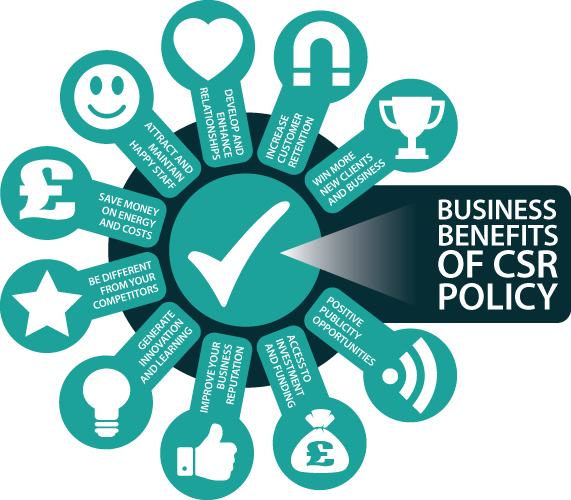Sustainability
In 1987, the United Nations Brundtland Commission defined sustainability as “meeting the needs of the present without compromising the ability of future generations to meet their own needs.”
To achieve genuine sustainability a business must ensure that every aspect of the business can be maintained for future generations.
In the current economic climate, achieving genuine sustainability needs to include becoming socially responsible.
Positive Social Responsibility improves a company’s public image and relationship with consumers.
It is all about reputation.
A good reputation improves:
- Consumer loyalty
- End user loyalty
- Staff loyalty
- And more importantly – referrals and enhanced brand visibility
Customers want to trust organisations they engage with. Employees want to work for values-driven employers and investors want to know that a company is addressing its ethical responsibility.
Social Responsibility has many advantages that can apply to any business, regardless of its size or sector.
It establishes a process that you can use every year to monitor and report your SR activities.
It is amazing what we are already doing in the arena of SR that we don’t talk about.
Many or indeed most of us will have already implemented positive action in one or more of the four pillars.

The benefits of SR accreditation (CSRA)
Better brand recognition:
Improve your brand reputation to all of your audiences through delivering ethical practices throughout your business.
Positive business reputation:
Building a reputation as a responsible business can lead to competitive advantage.
Customer engagement:
Using CSR accreditation can help you engage with your customers in new ways. Since the message is about something ‘good’, it can often be an easier way to talk to your customers.
Employee engagement:
Employees want to feel proud of the organisation they work for and are less likely to look for a job elsewhere. It is also likely that you will receive more job applications because people want to work for you.
Investment:
Investors are more likely to be attracted to and continue to support companies that demonstrate a commitment not only to employees and customers, but also to causes and organizations that impact the lives of others.
Tendering Trends:
A robust approach to Corporate Social Responsibility can give you an advantage in the tender process.
It is now common place to be scored on your CSR performance including health and wellbeing of staff when tendering for both pubic and private projects.
PR and Marketing:
CSR accreditation provides the opportunity to share positive stories online and through traditional media.
SR is not something for the short term. It’s all about achieving long term results and business continuity.
To find out more about how a social responsibility or ESG strategy can help you business and how CSR Accreditation can help your organisation contact us.
Case Study


